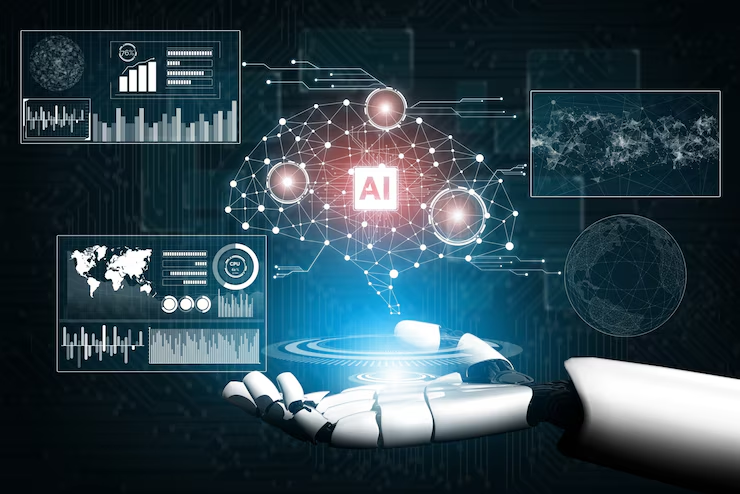Tech Flect – AI in healthcare: Expert predictions and innovations reveal a groundbreaking shift in how medical professionals diagnose diseases, discover new drugs, and personalize treatment plans. With AI driving automation and deep learning models, healthcare in 2025 is smarter, faster, and more accurate.
AI in healthcare: Expert predictions also highlight how hospitals and research labs are embracing AI to streamline workflows, monitor patients in real time, and accelerate clinical breakthroughs. From early detection to robotic surgeries, artificial intelligence is reshaping the way we heal and care.
Predictive Diagnostics and Early Detection
AI in healthcare is enabling early disease detection through imaging analysis, wearable data interpretation, and predictive modeling. Experts say these tools will reduce diagnostic delays and increase survival rates in serious conditions like cancer, stroke, and cardiac diseases.
Personalized Medicine Through Data
With massive amounts of patient data, AI systems can analyze genetic profiles, lifestyle habits, and clinical history to customize treatment. Expert predictions show this approach improves drug efficacy, minimizes side effects, and leads to targeted therapies tailored for individual needs.
Robotic Surgeries with AI Precision
Innovations in robotic surgery driven by AI allow for precision and minimal invasiveness. Surgeons can rely on machine-assisted guidance systems to improve accuracy, reduce recovery time, and cut surgical errors dramatically.
Smart Hospital Management
AI in healthcare helps hospitals manage resources efficiently, predict equipment needs, and schedule operations. Experts highlight how AI-driven planning tools are reducing patient wait times, improving bed management, and streamlining hospital workflows.
Medical Research and Drug Discovery
AI is transforming drug development by simulating chemical interactions and identifying compounds faster. Expert predictions show that AI shortens the research cycle and helps bring life-saving medicines to market more efficiently.
Real-Time Patient Monitoring and Alerts
AI systems analyze patient vitals continuously, detecting abnormal patterns and sending instant alerts to medical staff. This innovation is saving lives in ICUs and emergency care units where every second counts.
Integration with Wearables and IoT
Wearables like smartwatches and fitness bands generate vast data streams. AI interprets this data to track heart rate, sleep patterns, glucose levels, and more. Experts predict healthcare providers will use this integration to offer preventive care based on real-time insights.
Cybersecurity in Healthcare AI Systems
As AI systems handle sensitive patient data, securing them is vital. Experts emphasize the need for AI-based cybersecurity tools that detect data breaches, identify unusual access patterns, and protect confidential health records.
Challenges to Address
Despite progress, AI in healthcare still faces challenges including data privacy, algorithm bias, and regulatory hurdles. Expert predictions highlight the need for transparent systems, unbiased datasets, and ethical standards to guide innovation.
FAQs:
Q1: What do you mean by AI in healthcare?
A: AI in healthcare refers to the use of artificial intelligence to support clinical tasks like diagnostics, treatment planning, monitoring, and hospital management.
Q2: Can AI replace doctors in the future?
A: No, AI enhances doctors’ capabilities but cannot replace their judgment, empathy, or complex decision-making required in patient care.
Q3: How is AI improving patient outcomes?
A: AI helps by detecting diseases early, recommending personalized treatments, and ensuring continuous monitoring for better long-term outcomes.
Q4: What are the risks of using AI in healthcare?
A: Risks include data privacy issues, bias in algorithms, and incorrect recommendations if the AI is not properly trained or validated.
Q5: How fast is AI adoption in hospitals?
A: Expert predictions say AI adoption is accelerating, especially in large urban hospitals, though smaller clinics may adopt it more gradually due to cost.
Conclusion:
AI in healthcare: Expert predictions confirm a smart, data-driven future. From faster diagnostics to smarter surgeries, AI is enhancing care across the board. With continued innovation and ethical practices, AI will become the cornerstone of modern healthcare systems.



